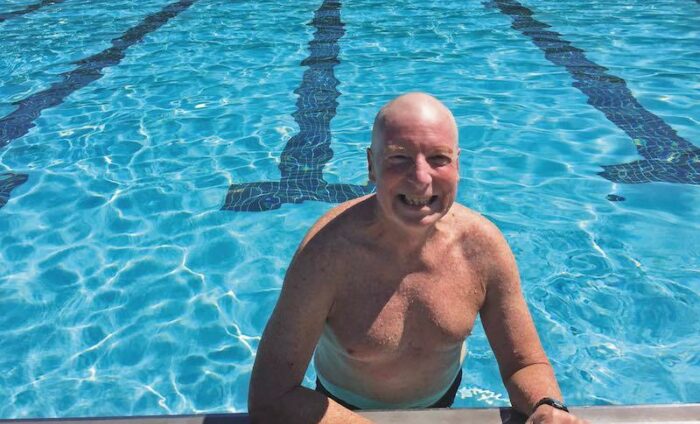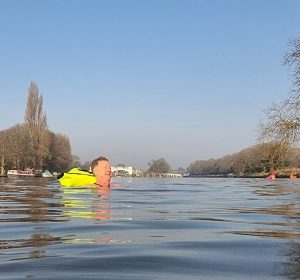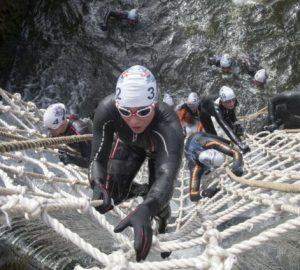
View from the Water – Terry Laughlin tribute
The death of Terry Laughlin is a sad loss to the swimming community, but his legacy will live on. By Simon Griffiths
The last time I met Terry
Laughlin, earlier this year,
we played a game of pool. He
wasn’t very good at it. But
with every shot, he got better. Winning
or losing didn’t matter. It was the
process of continuous improvement
that inspired him and gave him joy.
He watched, he analysed,
he practised and he got
better.
He told me he’d go
away and practise
some more, and
he promised me a
re-match. Sadly,
that re-match
can’t happen now.
Terry died from
complications
linked to prostate
cancer on 20 October
2017. He was just 66.
The process he applied to
our game of pool extended to all
areas of his life, especially swimming
and the teaching of swimming. He
also greatly enjoyed writing about
swimming and was passionate about
sharing his love of the water. He was
a consistent and thought-provoking
contributor to these pages between
2013 and October this year. In our
August issue, he wrote movingly about
living and swimming with cancer.
The central concept behind Terry’s
approach to swimming was that our
primary focus should be on reducing
resistance rather than increasing
propulsion, which runs contrary to our
instincts when we hit the water. His
second powerful idea is that, instead
of training ourselves to be able to
sustain hard physical effort for longer,
we should seek ways to minimise our
energy expenditure while swimming
and avoid wasteful efforts. As a
consequence, we should be able to
swim faster for longer.
Terry spent countless hours
watching the world’s best swimmers
and trying to figure out what makes
them so fast. He was a skilled observer.
For example, in the summer I shared
a video with him of Ferry Weertman
approaching the finish of the 10km
World Championships, which he
won. It looked to me as if Ferry was
breathing both sides, every stroke.
Terry disagreed. He said Ferry was
merely turning his head to keep an
eye on the competition. We asked
Ferry, through Twitter, and
he confirmed Terry
was correct.
Once he’d made
his observations,
he considered
what he could
incorporate
into his own
swimming
and that of
the people
he taught. He
advocated focusing
on one technique
point at a time and
fully engaging your brain in
the swimming process to accelerate
learning. He would constantly measure
his stroke rate and stroke count – the
two measures that determine your
speed through the water – so he could
track the effect of changing his focus
points. He didn’t train for swimming,
he practised. He never stopped looking
for ways to swim more efficiently and
this meant his swimming was always a
journey and always a pleasure.
As a teacher he developed a process
that works particularly well for people
who come to swimming later in life or
take up swimming again after years of
neglect. He appreciated that most of
us will never have the fitness, strength
and time to spend in the water as
elite swimmers but we could at least
emulate the techniques that made them
fast, and we can also experience great
joy in both the learning process and
swimming journey.
My own experience with Terry’s
teaching has been entirely positive. I
swim faster now than five years ago
and have a much greater awareness of
what I’m doing in the water, and I enjoy
swimming more. Terry didn’t just teach
front crawl either. I once did a half-hour
session with him on breaststroke and a
few months later I knocked six seconds
of my 200m time.
His passing is a sad loss for the
global swimming community. We are
fortunate that his name and legacy
lives on through the network of Total
Immersion coaches he has nurtured
through his life’s work.







